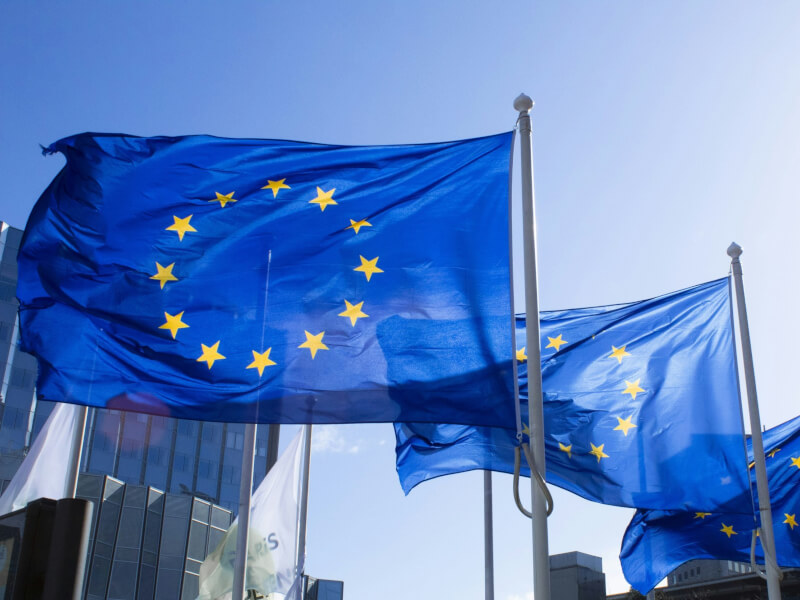17 April 2024 – The EU Council, under the leadership of Belgium as current holder of the EU presidency, has “paused” the approval of the Nature Restoration Law, a decision that runs contrary to democratic norms, science and good business practice.
The law is already not what it was, having been watered down as it progressed through the various stages of the EU legislative procedure, adapted to reflect the views of a broad spectrum of actors, including farmers, industries and municipalities.
Nonetheless, the comprise text is a good starting point for action and EU member states should have been able to simply rubber-stamp the bill. Instead, at the end of March, certain countries decided they would play politics ahead of the upcoming European Parliament elections and halt the advancement of the Nature Restoration Law.
This decision was made despite the extremely poor state of nature in Europe. Over 80 per cent of habitats in the EU are in a bad or a poor state and the situation is getting worse.
The law aims to revert this degradation and to restore at least 20 per cent of the EU’s land and sea areas by 2030 and all ecosystems in need of restoration by 2050. The Law is an integral part of Europe’s climate and green objectives but also ensures our lands continue to thrive and regenerate.
The degradation of nature comes with massive threats to agriculture, water supplies, public health and infrastructure, hence why the law has received firm backing from businesses, scientists, renewable energy companies, politicians and even farmers. Indeed, it has already been approved by a majority in the European Parliament.
A letter from leaders of businesses and financial institutions, including from Unilever, Ikea and H&M, makes it clear “our dependence on a healthy environment is fundamental to the resilience of our economies and, ultimately, our long-term success”.
The Nature Restoration Law, in conjunction with other EU regulations, will “create a level playing field for all businesses in Europe, by providing regulatory certainty and enabling conditions to foster innovation, transform business practices and business models,”, the letter states.
Likewise, more than 6000 scientists say they consider the law an urgent and necessary step to ensure European economies continue to thrive in the age of climate change and accelerating biodiversity loss.
The EU was also a leading voice in helping to draw up and rally the international community around the Montreal “Global Biodiversity Framework,” in which countries from around the world agreed to protect 30 per cent of the planet’s nature by 2030. And protecting nature is vital for the EU to meet its climate commitments by ensuing that carbon is sequestered in fields and trees rather than released into the atmosphere.
The EU Council presidency’s job is to ensure that the will of the parliament is recognised and to drive forward the legislative process to a conclusion. Instead, the presidency, itself critical of the law, has allowed national and lobby interests to derail the process.
The continued failure of the Belgian presidency to support the Nature Restoration Law would cause unmeasurable damage.
It would harm the integrity of the EU and its institutions, the reputation of the Belgian government and the recognition of Europe as a reliable custodian of international treaties.
It would be disastrous for habitats and wildlife species, which will continue to decline, food production, climate action and the outlook of Europe’s next generation.
It would also harm the interests Belgium and other Member States purports to be supporting in its decision to “pause” the legislation, namely those of business and farmers.
“Biodiversity – the variety of life on Earth – is essential for sustaining the healthy ecosystems that our economy and banks depend on,” writes the European Central Bank. Without nature, the economy will cease to function.
Similarly, without healthy soils and pollinators like bees and other insects, farmers will be much less able to grow their crops, with disastrous implications for them personally, food security and the economy.
There is no time to wait and there will be no winners from yet further delays in approving the EU Nature Restoration Law.
We urge the Presidency to support the law and call on member states to put the interests of Europe and its citizens first, rather than playing games ahead of the elections. We also demand that lobby organisations hold back and consider the wider state of the world rather than focusing on narrow-minded personal convictions.
Never has Europe been more important. It is the moment to show why.






